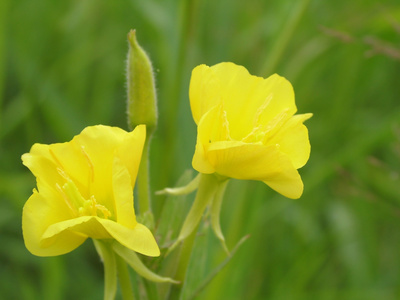
Evening Primrose (Oenothera biennis L.)
 Parts used:
the oil from the seed
Parts used:
the oil from the seed
Constituents: polyunsaturated fatty acids - up to 80% linoleic acid, up to 14% gamma linolenic acid (GLA), oleic acid, palmitic acid
Actions: anti-arteriosclerotic
Indications: premenstrual syndrome, eczema, hyperactivity
Applications: The body uses GLA for the production of prostaglandins, hormone-like substances that help regulate the body’s metabolism and endocrine system. Evening Primrose oil is often used to ease the symptoms of premenstrual syndrome, particularly breast tenderness. It can help lower blood pressure and prevents clumping of blood platelets, and it appears to exert a calming effect on hyperactive children. Applied topically, the oil is of value in alleviating itching, flaking and inflamed skin.
Safety: Contraindicated in epilepsy.
Dosage: 1000mg daily









